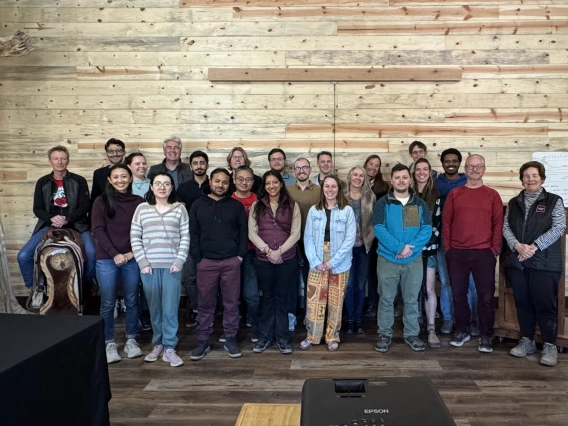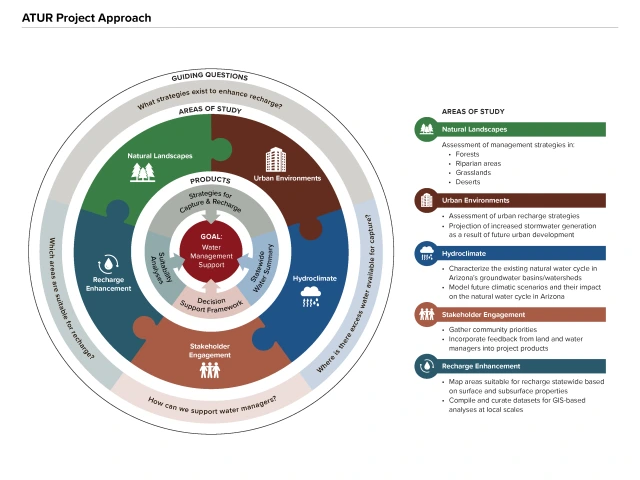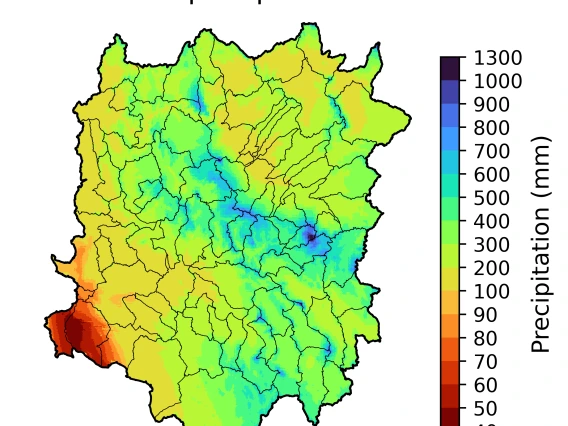Arizona Tri-University Recharge and Water Reliability Project (ATUR)
Protecting and enhancing Arizona's groundwater supplies
Escalating drought over the past two decades has led to growing concerns about water availability in Arizona, where over 95% of precipitation evaporates before it can be used by communities and ecosystems.
At the request of the Arizona Department of Water Resources, our team of researchers from the University of Arizona (U of A), Arizona State University (ASU), and Northern Arizona University (NAU) is investigating where and how water that would have otherwise evaporated can be captured and recharged to support groundwater supplies now and in the future. This 3.5-year applied hydrologic research effort focuses on enhancing Arizona's water supplies through four objectives:
- Develop a statewide water summary of both current and future hydrologic fluxes
- Analyze recharge suitability across Arizona's groundwater basins
- Identify strategies for capture and recharge in natural and urban environments, and
- Develop a decision-support framework for prioritizing regions for potential recharge projects to support natural resource managers and decision-makers.
We invite you to read a recent news article featuring our work, as well as our Summer 2025 newsletter detailing project updates!
ABOR News Article Summer 2025 Newsletter
This project is funded by the Arizona Board of Regents through the
Technology and Research Initiative Fund

Lead CCASS Contacts:
Kathy Jacobs, CCASS Director, ATUR Project PI
Neha Gupta, Assistant Research Professor, ATUR Project Manager




